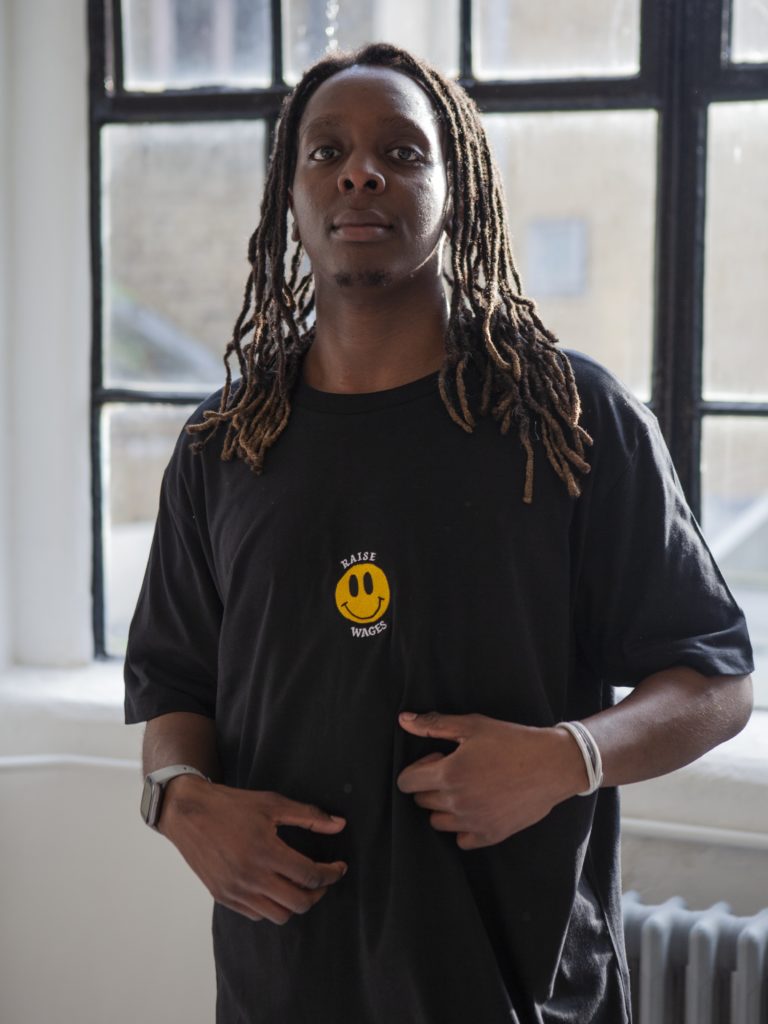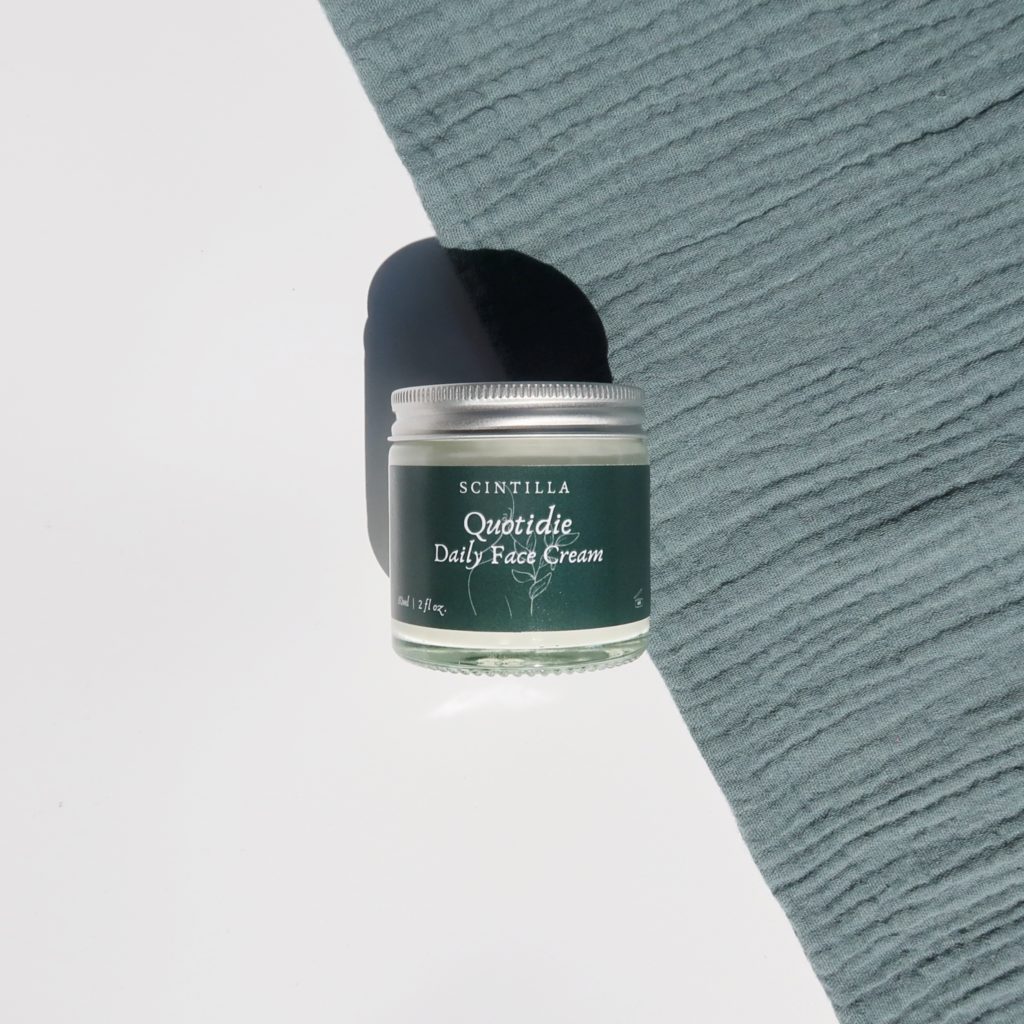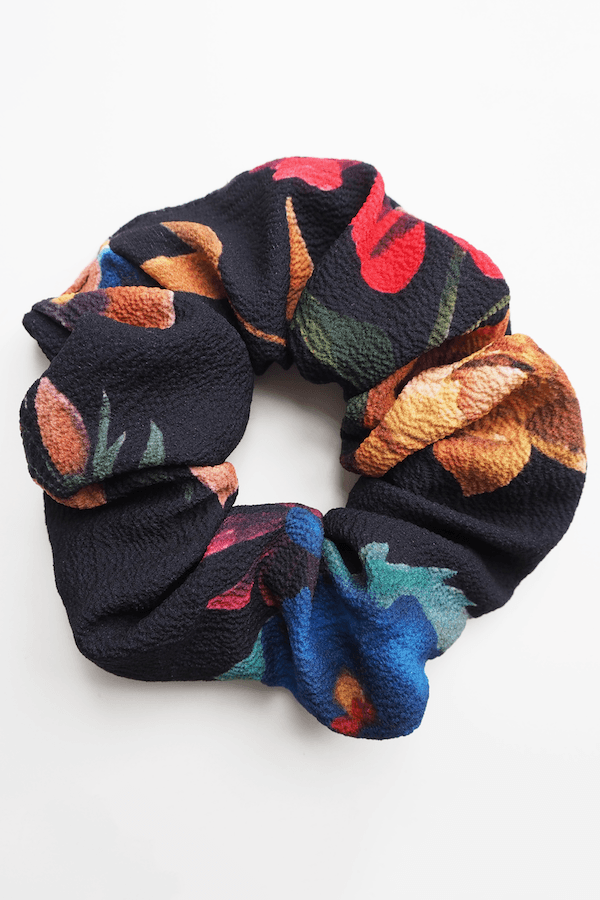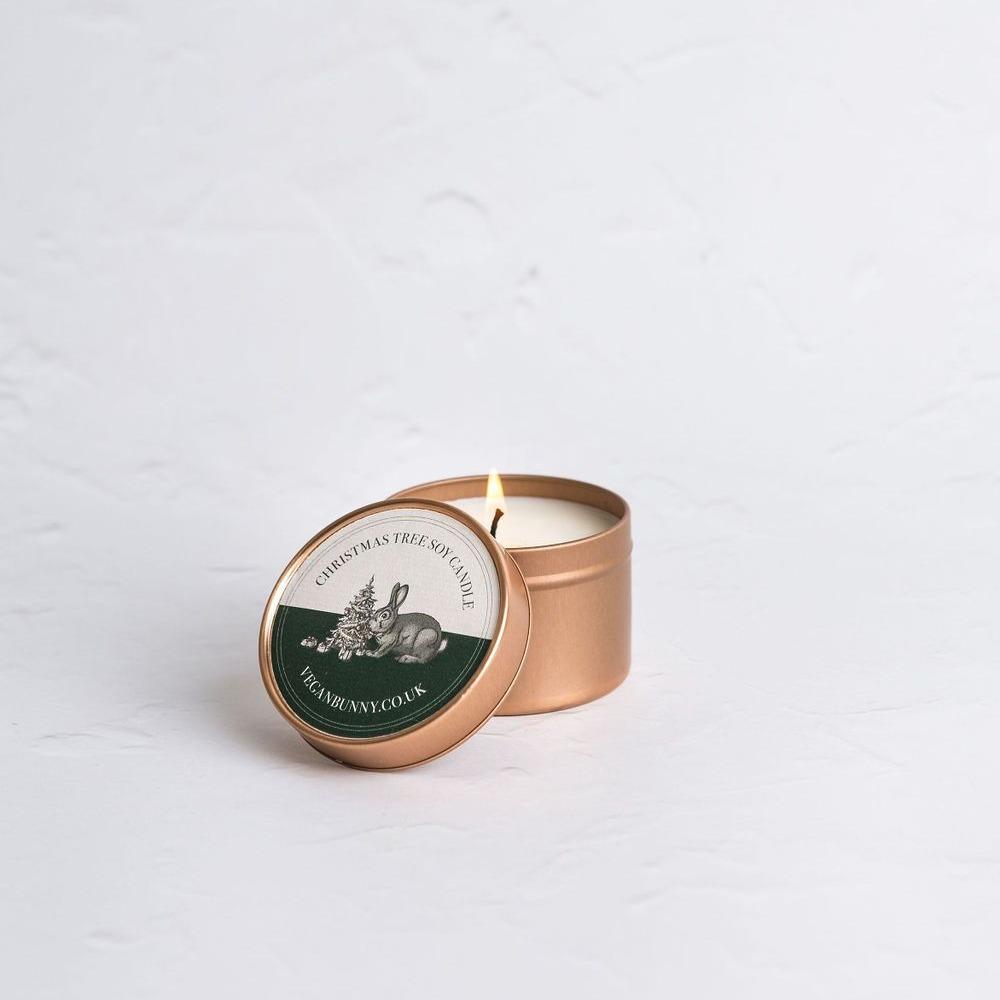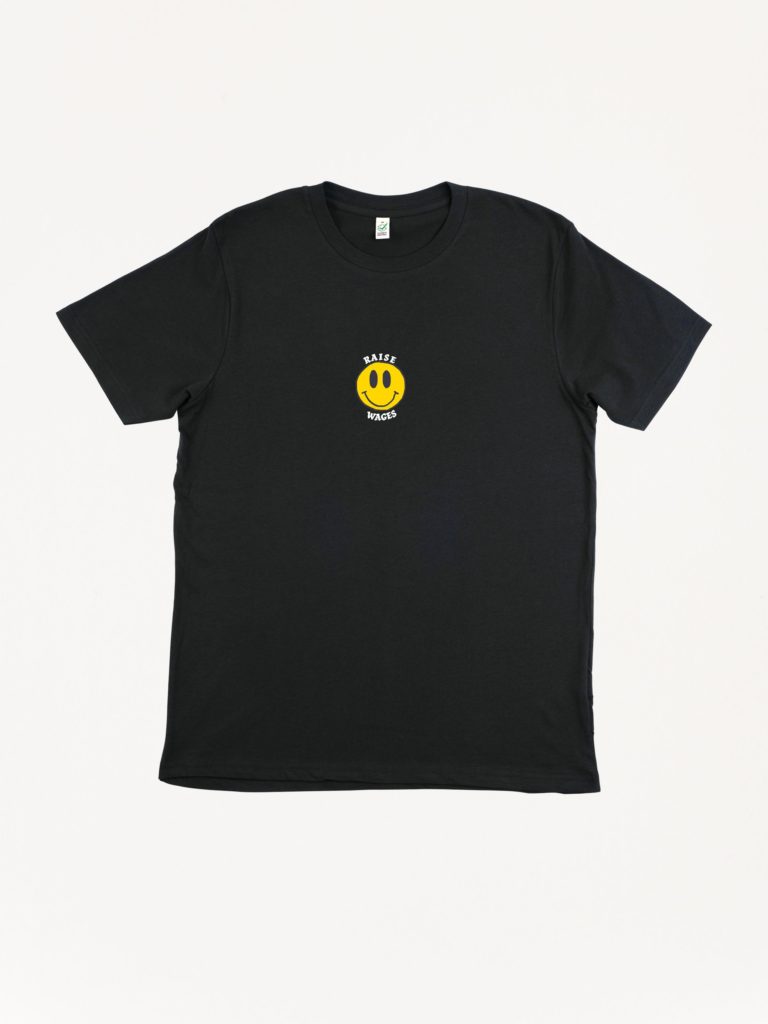Gifting fashion more sustainably this Christmas with Birdsong
9/12/2021
Thoughtful clothing brand Birdsong have long been admired in the UK fashion industry for doing things differently. Their approach to both making clothes and taking care of the people who make them has won them accolades and socially conscious shoppers alike.
As we get closer to Christmas and thoughts turn not just to gifts, but also what to wear to first festive gatherings in 2 years, we’ve handed over our blog to the Birdsong team to tell us how to gift fashion items more sustainably this year.

At Birdsong, we design clothing to empower women. We are a social enterprise, meaning that 50% of our profits go back into helping grassroots communities and the people that we employ. We work with women all around London to make our clothing, for example Mona, who embroiders all of our T-shirts from a community centre in Bow where she teaches sewing classes to her local community. Or the ladies at FabricWorks, a social enterprise who train women in fashion and make all our made-to-order garments in East London. All our employees are paid the London Living Wage and we aim to be entirely transparent about resources, labour and finances with our annual Impact Report.
Making clothing on such a large scale and at such high speeds means cheap materials are used – keeping costs low for the company and for consumers – and in a world where poverty is at a high, many people rely on inexpensive clothing. But this low cost comes at a price. Fast fashion clothing is made with planned obsolescence, meaning that it is designed to be damaged or ruined easily, contributing to its low-wear, throwaway nature. The materials used in fast fashion manufacture are lower quality, and are most often not natural materials like cotton or wool, but usually synthetic fibres, which can end up in our oceans and water systems. With each wash, around 1,900 microfibres are leaked into small aquatic organisms.
We source fabrics as sustainably as we possibly can, working with materials like Tencel, organic cotton and recycled denim, and we cut down on waste from the offset, making sure to use all offcuts to produce our scrunchies and face masks. To further ensure minimising waste, we also make all of our clothing to order, therefore never overproducing garments.
Our goal is and has always been to empower women, and to work alongside powerful women to create beautiful, eco-conscious clothing. When you shop at Birdsong, you can be proud of your wardrobe and the positive effect it has on the planet and community.
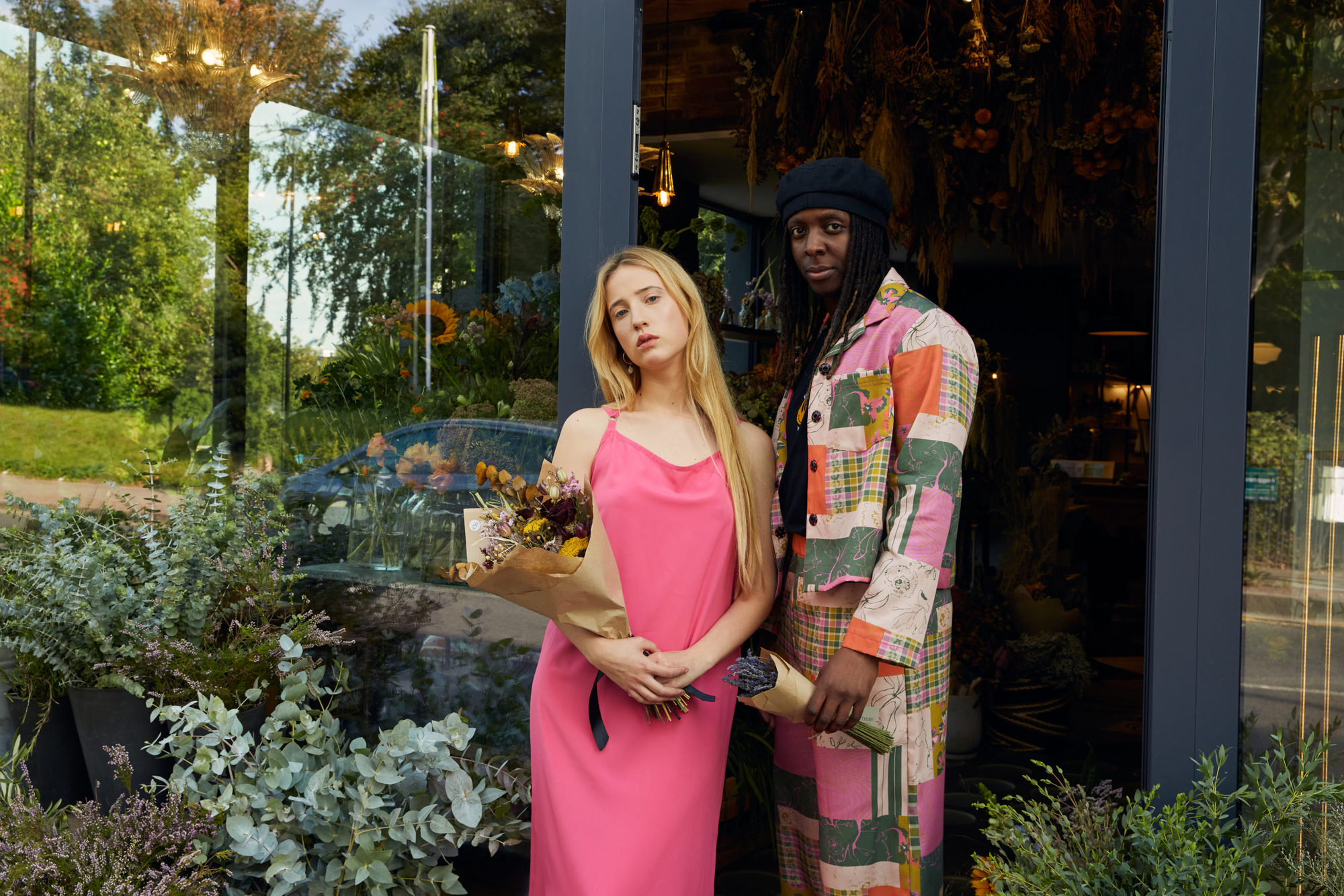
Christmas is the most wonderful time of the year, a time for family, friends and food. But it can also be the most wasteful time of the year for a lot of UK households. Around half of the UK have said that they have received gifts that they don’t want or need, and around 114,000 tonnes of plastic packaging will be thrown away rather than being recycled in the UK each Christmas. So what are the best ways to curb your waste this Christmas?
Using recycled or sustainable wrapping paper, cutting down on meat consumption by swapping out for a meat-free alternative, or switching to homemade decorations and crackers will all help to make for a more sustainable festive period. But conscious gifting is another easy way to change your approach.
The garment industry is responsible for around 8% of global carbon emissions annually, which is one of the worst industry statistics. While fast fashion is cheap and accessible, it also comes at a cost. The average lifespan of fast fashion garments is comparatively very short. More than 50% of fast fashion clothes will be discarded within one year of purchase. So what can we do this Christmas to be better?
Buying second hand – using charity shops, or apps like Depop and Vestiaire Collective (to name only a couple) – means that clothing gets a second life and doesn’t end up in landfill as quickly. Lengthening the lifespan of clothing products can really help towards a greener future. According to a recent study, the UK has been named as the fourth largest producer of textile waste in Europe. The study found each Briton throws away about 3.1kg of textiles every year, and that 1.7kg of fashion waste is landfilled yearly per person.
Wearing clothes for an extra nine months reduces a garment’s carbon, water and waste footprint by around 20-30% each, and cuts the cost in resources used to supply, wash and dispose of clothing by 20%. So by buying second hand, you’re not only saving money, but also helping save the planet.
Sustainable brands are so widely available now – shopping for clothing and other gifts online, sites like the Social Supermarket can be a great place to start, and means that you know what you’re buying is sourced ethically. They have some great brands on their site – like Goldfinger, who upcycle reclaimed materials into homewares and other utensils, and Scintilla, who create beautiful, eco-conscious skincare products. Sites like this can help to avoid purchasing from fast fashion brands, which are more affordable and often accessible to the mass market, however the cost is much worse for the planet.
Over half of fast fashion garments are only worn for around 1 year, and end up in landfill afterwards. Making clothing on such a large scale and at such high speeds means cheap materials are used – keeping costs low for the company and for consumers – and in a world where poverty is at a high, many people rely on inexpensive clothing. But this low cost comes at a price. Fast fashion clothing is made with planned obsolescence, meaning that it is designed to be damaged or ruined easily, contributing to its low-wear, throwaway nature. Many of these items will take hundreds of years to break down, leading to more waste and the emission of toxic gases and chemicals. The materials used in fast fashion manufacture are lower quality, and are most often not natural materials like cotton or wool, but usually synthetic fibres, which can end up in our oceans and water systems, as well as landfill. With each wash, around 1,900 microfibres are leaked into small aquatic organisms.
Buying garments made from organic and sustainable materials means that they will break down much quicker, and are much safer for the planet.
At Birdsong, we source all our materials as sustainably as we possibly can, using organic cottons which reduces water consumption by 91% compared to conventionally grown cotton. We also pay all of our workers a living wage, meaning that our clothing is made fairly from design through to dispatch. Most of our clothing is made to order, meaning that we reduce waste from the very beginning of production. We also aim to use any offcuts that we have, keeping the disposal of fabrics to a minimum.
Only 1% of consumer goods are still in use 6 months after Christmas each year, so buying gifts that loved ones actually want and need is important. Throwaway gifts and single use plastic packaging also contribute massively to landfill each year. Buying gifts that cut down on packaging which will be used for longer can help to avoid having an environmentally-damaging holiday period.
Changing the way that you gift fashion this Christmas (and beyond) can be an easy step to living a more eco-conscious lifestyle in the new year, and is an easy change to make. Below, we have listed some of our top stocking fillers from Social Supermarket, from fashion through to lifestyle and skincare gift ideas.
Stocking fillers we’re hoping for this year
Quotidie Daily Face Cream by Scintilla
Christmas Tree candle by Vegan Bunny
Raise Wages T-shirt by Birdsong
- Where to next? Get more ethical stocking filler and other Christmas git ideas
- Read more behind the scenes blogs written by our brands, like GOOD Botanics and Hip Hip Hooray

